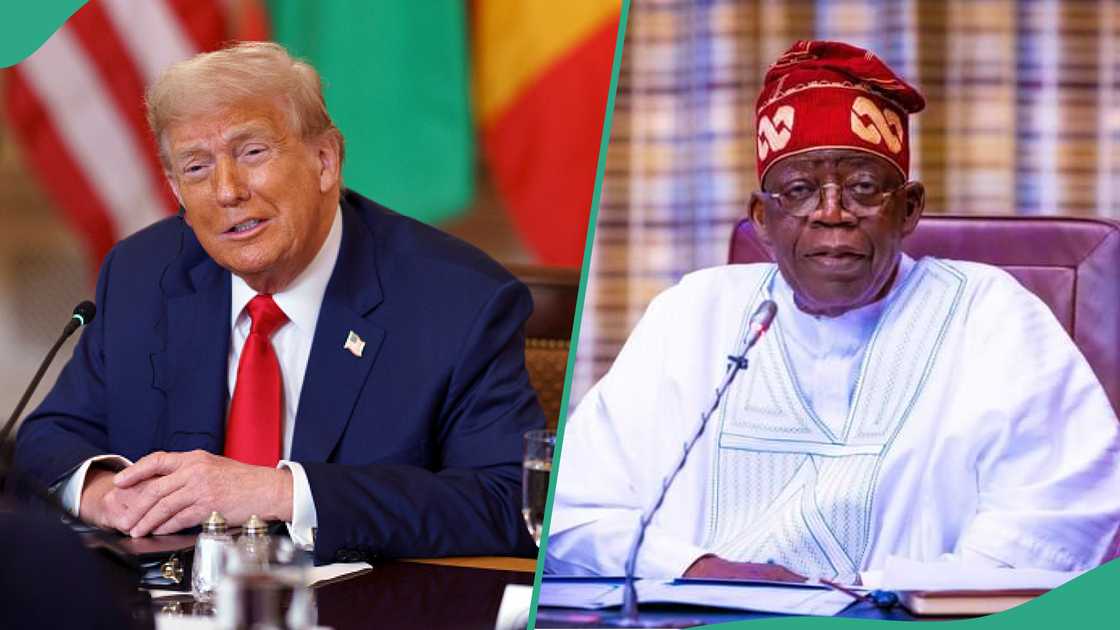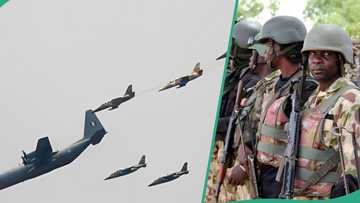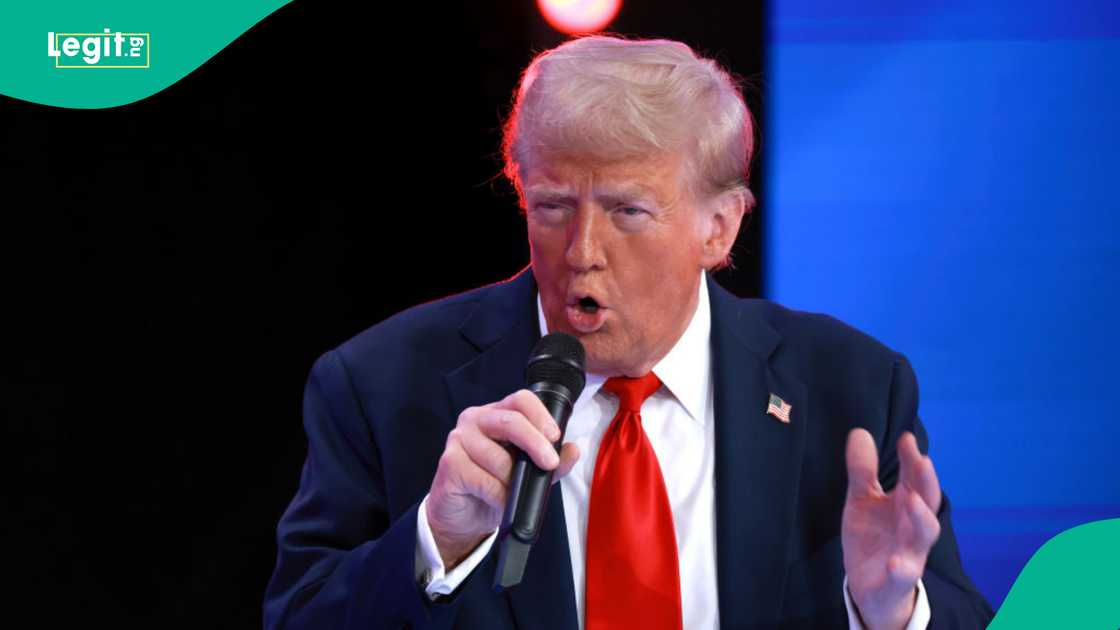US Approves $32.5 Million to Combat Hunger in Nigeria, Mentions Those Who Will Benefit
- The United States has pledged $32.5 million in aid to Nigeria, marking a rare policy shift since the suspension of most USAID programmes under President Donald Trump
- The funding aims to combat an escalating hunger crisis in northern Nigeria, where over 1.3 million people face severe food insecurity and other humanitarian issues
- The assistance will support more than 760,000 vulnerable Nigerians, including pregnant women, children, and displaced families in conflict-affected regions
The United States has approved $32.5 million in humanitarian assistance to Nigeria, aimed at tackling a deepening hunger crisis in the country’s conflict-ridden northern regions.
The announcement marks a rare shift since former President Donald Trump suspended most aid through the US Agency for International Development (USAID).

Source: Getty Images
Food assistance targets internally displaced Nigerians
The US Mission to Nigeria confirmed on Wednesday, September 3, 2025, that the funding would be directed towards food and nutritional support for internally displaced persons in areas affected by ongoing conflict.

Read also
Breaking: Jubilation as over 15 terrorists killed in military’s airstrikes in Sambisa, Borno
According to the statement, the aid package is expected to benefit 764,205 individuals across Nigeria’s north-east and north-west regions.
“This includes complementary nutrition top-ups for 41,569 pregnant and breastfeeding women and girls and 43,235 children through electronic food vouchers,” the mission stated.
Northern Nigeria faces “unprecedented hunger crisis”
The World Food Programme (WFP) has warned that insecurity and global funding cuts have plunged northern Nigeria into what it described as “an unprecedented hunger crisis.” In July, Margot van der Velden, WFP’s regional director for West Africa, said that over 1.3 million people in Borno State alone risked being left without food, with 150 nutrition clinics facing potential closure.
The WFP also suspended food assistance across several crisis-hit countries in West and Central Africa earlier this year, citing severe funding shortfalls from the U.S. and other donors. The organisation projected that food stocks in most affected nations would be depleted by September, leaving millions without emergency aid.

Read also
Presidency lists 4 things Nigerians need to know as non-oil revenues power strong fiscal performance

Source: Getty Images
Rising violence and longstanding insurgency compound crisis
The humanitarian situation has been exacerbated by escalating violence in Nigeria’s north-west and north-central regions. Recent months have seen a surge in attacks on rural communities, often driven by disputes over land and water access. In June, one such attack in north-central Nigeria claimed the lives of 150 people.
Meanwhile, the country continues to grapple with a long-running insurgency in the north-east, which has claimed approximately 35,000 civilian lives and displaced more than 2 million people, according to United Nations estimates.
US embassy quietly revokes Nigerian visas
Legit.ng earlier reported that the United States Embassy in Nigeria has quietly begun revoking valid visas previously issued to Nigerian citizens, triggering widespread disruption for professionals, entrepreneurs, and families who rely on international travel for work, education, and personal commitments.
In a recent article titled ‘The quiet revocation: Why is the U.S. silently cancelling Nigerians’ visas?’, former Chief Corporate Communications Officer of NNPC Ltd, Olufemi Soneye, claimed that numerous Nigerian citizens had received official letters from the US Embassy in recent weeks.
These letters instructed recipients to submit their passports to consulates in Lagos or Abuja, where their visas were subsequently cancelled without explanation.
Proofreading by James Ojo, copy editor at Legit.ng.
Source: Legit.ng



